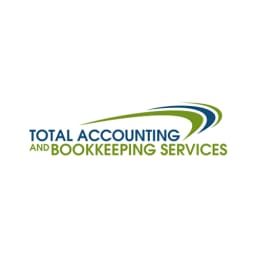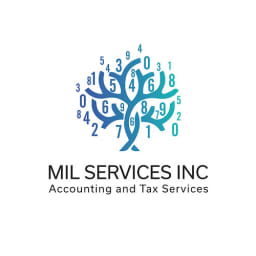
Bookkeeping Service Resources
& Best Bookkeeping Services
Find a Top-Ranked Bookkeeping Service Near You
We did the research for you!
- Licensing
- User Reviews
- Mystery Shopping Calls
Learn about our selection process.
Top Bookkeeping Services
= Featured Provider
New York, NY
George Dimov, C.P.A.
211 E 43rd Street Suite 628, New York City, NY 10017Heartfelt CFO and Tax Services LLC
Cedarhurst, NY 11516Bookeeps
Queens, NY 11435
Los Angeles, CA
Total Accounting & Bookkeeping Services
El Segundo, CA 90245Rockwell Capital Group
100 W Broadway STE 750, Glendale, CA 91210Unchained Financial Services
West Hollywood, CA 90069
Chicago, IL
BM Accounting and Tax, Inc.
Chicago, IL 60647Quicksolvers
Chicago, IL 60661Pasquesi Partners LLC
Chicago, IL 60603
Houston, TX
Aberdare Business Solutions
Katy, TX 77450Cox CPA Services
Houston, TX 77024PlusPoint Business Solutions
Houston, TX 77060
Phoenix, AZ
Mom and Pop Tax Shop
Tempe, AZ 85281A-Team Accounting
7304 N 23rd Ln, Phoenix, AZ 85021Mil Service Inc
1024 S. 1st Ave., Phoenix, AZ 85003
Philadelphia, PA
Kim Yeung Ling P.C.
1010 Race Street 1st Fl Suite 3, Philadelphia, PA 19107The Neve Group Ltd.
Philadelphia, PA 19103Dougherty Financial Consultants
Philadelphia, PA 19145
San Antonio, TX
Small Business Services of San Antonio LLC
14603 Huebner Road, San Antonio, TX 78230Mendoza & Associates LLC
2023 Lockhill Selma Road, San Antonio, TX 78213Affordable & Reliable Bookkeeping, LLC
Boerne, TX 78006
Dallas, TX
Jones Square
6205 Chapel Hill Boulevard, Plano, TX 75093Expertise.com Concierge Service
Dallas, TXEmpower Bookkeeping Firm LLC
Garland, TX 75049
San Diego, CA
Beachwood Financial Solutions
San Diego, CA 92108BooXkeeping
San Diego, CA 92108Hoffman & Associates
San Diego, CA 92123
San Jose, CA
Dimov Tax
San Jose, CAExpertise.com Concierge Service
San Jose, CALinda Rost's Better Bookkeepers
San Jose, CA 95119
Top Bookkeeping Services in other locations
- Bookkeeping Services in Denver, CO
- Bookkeeping Services in Seattle, WA
- Bookkeeping Services in Washington DC
- Bookkeeping Services in Las Vegas, NV
- Bookkeeping Services in Portland, OR
- Bookkeeping Services in Louisville, KY
- Bookkeeping Services in Oklahoma City, OK
- Bookkeeping Services in Tucson, AZ
- Bookkeeping Services in Atlanta, GA
- Bookkeeping Services in Albuquerque, NM
Find a Top-Ranked Bookkeeping Service Near You
Frequently Asked Questions
Introduction
Hiring a bookkeeper can free up your time so you can focus on running your business. However, handing off this type of duty can feel like handing off private company information to an outsider. So, to counter that feeling, choose a bookkeeper who is experienced and reputable. When you’re considering handing off bookkeeping duties, it can build trust if you know you’re dealing with a professional.Bookkeepers typically have specialized record keeping and accounting knowledge. Entering transactions in the correct ledger column and preserving records to be able to access later are two important bookkeeping functions. The knowledge about how to manage numeric data properly guides a bookkeeper when processing and filing information for your small business. Some bookkeepers offer additional accounting-related and HR-related services beyond basic bookkeeping.What is bookkeeping?
Bookkeeping is the technique that’s used to record every financial transaction a business makes. Bookkeepers typically use either paper ledgers or bookkeeping software to record every penny a business spends and receives. Funds going into or out of all major and minor accounts are recorded, but analytical reports aren’t generally created as part of the bookkeeping process.
What does a bookkeeper do?
Without taking over accounting functions, bookkeepers do the basic management tasks for a firm’s accounting ledgers. Transactions, which are also referred to as journal entries, are recorded by the bookkeeper. Bookkeepers also generate financial statements for businesses, typically by printing out a spreadsheet or series of spreadsheets.
What is the difference between bookkeeping and accounting?
Bookkeeping is a basic accounting function, but it isn’t as in-depth and all-encompassing. Bookkeeping forms the basis for accounting processes, and it’s based on performing clerical duties. Accounting is more in-depth and analytical. Bookkeepers accurately record financial data, and accountants use the recorded data to summarize and evaluate the company’s transactions.
Can bookkeepers do tax returns?
Bookkeepers do not typically do tax returns. However, bookkeepers do perform some tax-related functions such as processing 1099s and some basic tax records for employees. Additionally, bookkeepers make tax preparation easier for others by organizing and accurately maintaining the financial records that are used by tax accountants when preparing taxes.
Do bookkeepers do payroll?
Some bookkeepers perform payroll functions for employers, but it isn’t a standard part of the job for most bookkeepers. Payroll tasks typically fall under the set of tasks that a human resources department handles. Bookkeeping agencies sometimes offer packages that include managing payroll and tax forms for businesses.
What is a full charge bookkeeper?
Small businesses sometimes hire a full charge bookkeeper to take responsibility for all the company’s accounting processes. In addition to reconciling ledgers and banking statements, these bookkeepers answer phones, collect money, and pay debts on behalf of companies. Full-charge bookkeepers also manage payroll duties and some types of tax preparation and remittance.















.jpg)











